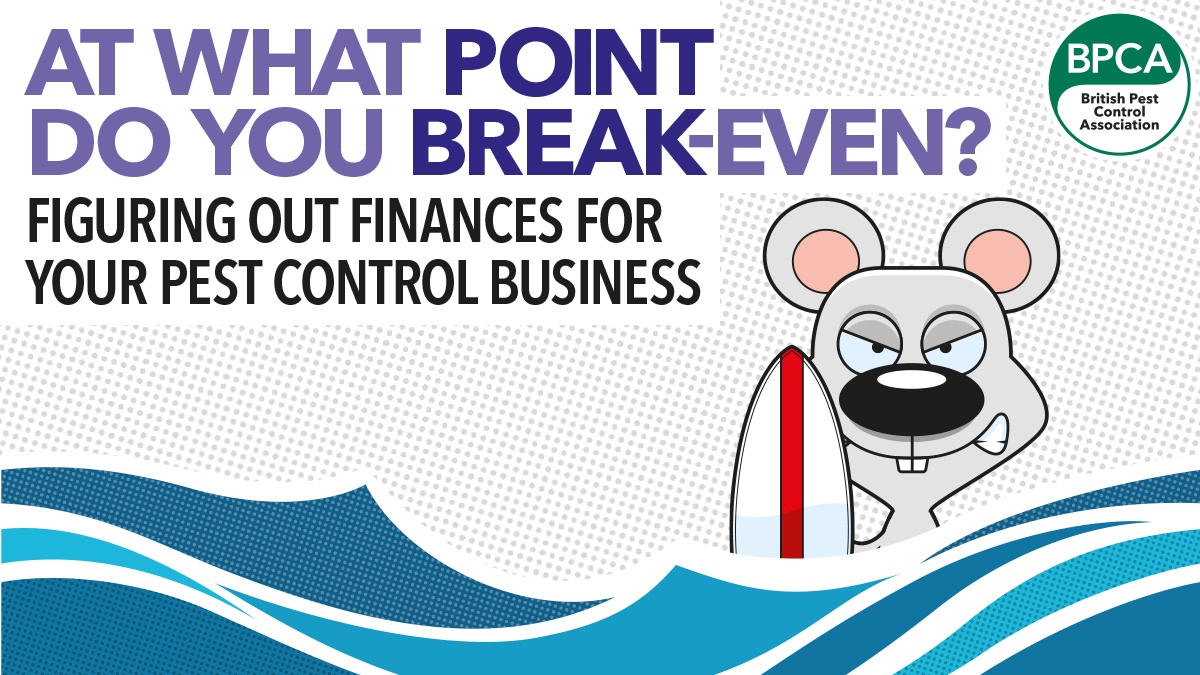BUSINESS | PPC109 October 2022
Starting a new business can be a daunting and costly venture. We asked the owner of Blu Bookkeeping, Julie Holland micb, to give new business owners an overview of the importance of knowing initial business costs and measuring profit.

One of the important numbers to know in your business is the break-even point of your finances.
Breaking even is when your income (invoices/sales) covers all your business expenses. Any income after that is profit.
If you know what you must do to break-even, then you know what you have to do for your business to survive, and also, what you can do to succeed, make a profit and grow your business.
Knowing this figure can help you understand if you are charging enough for your services or spending too much. It can also give you a sales figure to aim for each day, so that you know you have enough to pay the bills and make a profit.
Starting out
When any business first starts out, the outgoings are always much higher than any income from sales. This is usually due to the initial costs like advertising, website, stock, equipment, vehicle etc.
When a business breaks even, it is the first positive sign of the potential for making a healthy profit, and a successful business.
Until your business becomes better known, it can take time to bring in a steady stream of customers and contractual work, so knowing the level of sales required to pay all the bills gives you something to work towards and monitor progress.
Where do you get your break-even point from?
Example: Say you do £10k in sales in a month for 100 jobs, it costs you £3k in pesticides/materials and £4k in other costs like van, insurance etc.
You have spent £7k to create £10k of sales, therefore, you must invoice £7k to cover the cost of the jobs and this is your break-even point.
To find a daily break-even point divide £7k by 30 days = £233 per day.
The example is extremely simplified, but you get the picture; you can see how powerful knowing that number can be.
Increasing prices means you need to do fewer jobs to break even, which means more time with the kids, in the gym or down the pub!
Discounting, on the other hand, causes your break-even point to go up by reducing your sales line and decreasing your profit which means you need to do more jobs to cover costs.
Using your break-even figure to grow your business
Now you know your BEF (break-even figure), you can set yourself a sales target, either daily or monthly.
That target could be a sales figure, or the number of jobs done or increasing your average price per job and could help motivate you to work harder when you know what sales numbers you are aiming for.
Other ways to use the BEF
You could review your prices or review your costs. If sales go up, your break-even point reduces, if you reduce expenses the same happens.
If you want to take on an employee, you can work out how much he/she needs to earn in a day to cover the cost of their employment.
If you want to buy or lease a new van, you can add the cost to the monthly calculation to see what difference it makes to your BEF.
If you are considering funding – it’s worth noting that your break-even analysis is often a key component of a business plan. If you’re thinking about funding for your business or taking on a business loan for a van or equipment, you’ll probably need to do a break-even analysis.
Knowing a manageable break-even point will give you peace of mind with the prospect of taking on extra financing or debt.
There are many ways a break-even analysis can impact a pest controller’s business decisions, so tracking it every month is essential, especially if you have plans to grow your business.
STARTING OUT?
Thinking of moving into business for yourself? Take a look at our Starting and Managing Your Own Pest Management Business training course.
More info
Source: PPC109